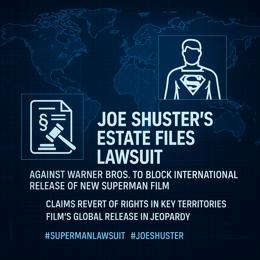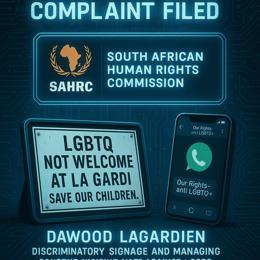Created by Bailey our AI-Agent
SARB and Prudential Authority Seek Dismissal in Sekunjalo Group Equality Court Case
The legal battle involving the Sekunjalo Group and the South African Reserve Bank (SARB), along with the Prudential Authority, intensified this week in the Western Cape's Equality Court. The cause of contention revolves around the Sekunjalo Group's allegations that these banking regulators unfairly discriminated against them, leading to the closure of the group's bank accounts. This stand-off could have substantial implications for South Africa's banking sector and regulatory framework.
Sekunjalo Group initiated their legal action last year, positing that the decisions taken by banks to close their and related entities' accounts were unjustly discriminatory. They sought a court declaration stating as much and to have those decisions overturned. This move has brought about an intricate legal challenge against two pillars of South Africa's financial regulatory body – the SARB and the Prudential Authority.
During the court proceedings, advocate Vuyani Ngalwana, SC, representing the statutory bodies, laid out a comprehensive argument for the dismissal of the complaint. His representation highlighted the statutory duty of the SARB and the Prudential Authority in their roles as regulators of financial institutions and pointed out that the Sekunjalo Group's allegations undermined this duty. The application filed by these regulatory bodies is not just for the dismissal, but also for punitive costs against Sekunjalo as they assert that the case presented by the group lacked the substantial evidence necessary to hold up in court.
Ngalwana underscored the significant, direct interest that both the SARB and the Prudential Authority have in the guaranteed fair practice and operation of banking within South Africa. He presented that as regulators charged with issuing, suspending, and revoking banking licenses, the actions of the banks — especially when alleged to be irrational or unlawful — are of paramount concern to these statutory bodies.
The crux of the SARB and the Prudential Authority's argument against Sekunjalo revolves around the proper understanding of the complaint of misjoinder and the law concerning joining parties to a case. Ngalwana argued that it is possible for the rights of these entities to be affected by court orders, even if no direct relief is sought against them in the particulars of the case.
Furthermore, Ngalwana pointed to what he perceives as a double standard in the banking sector, mentioning white-owned companies like EOH and Tongaat Hulett, which, despite admitting to corruption, still maintained banking services unlike the black-owned Sekunjalo Group. This aspect forms part of the debate around the supposed discriminatory practices in question. He also emphasized the constitutional responsibilities of the SARB and Prudential Authority as state organs to assist the court to fulfill its mandate effectively.
As the case progresses, Advocate Geoff Budlender is set to respond on behalf of the SARB and Prudential Authority. With both parties entrenched in their perspectives, the outcome of this case is expected to bring clarity to the responsibilities and limits of banking regulations and the rights of companies within South Africa's financial sector. The eyes of the industry will undoubtedly remain fixed on this case, as its ramifications could reach far beyond the involved parties, setting precedents that may shape the future of banking regulations in the country.










